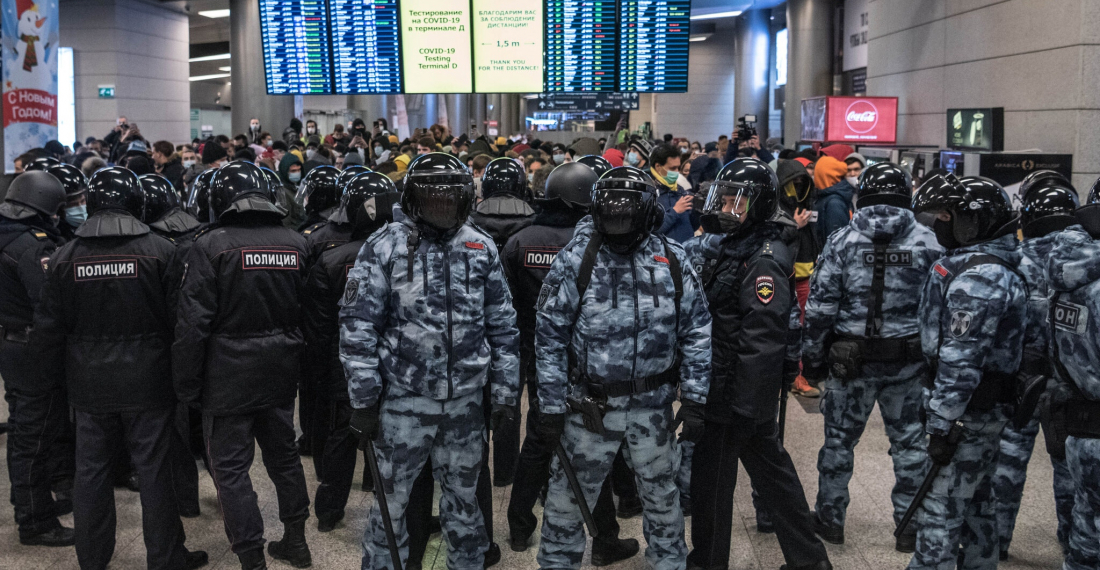There has been widespread international condemnation after the Russian authorities arrested opposition politician Alexei Navalny when on Sunday he returned back to Moscow after receiving medical treatment in Germany.
Mr Navalny, 44, was detained by police at Moscow Sheremtyevo airport soon after his flight from Germany landed. Hundreds of people braved the bitter cold outside Moscow’s Vnukovo Airport to greet Mr. Navalny, but the low-cost Russian airline he was flying was diverted just before landing to Moscow's Sheremtyevo airport. There, at passport control, Mr. Navalny was confronted by uniformed policemen in black masks.
The activist was returning to the county five months after he was almost killed in a nerve-agent attack he blamed on Russian authorities.
President Vladimir Putin's government denies poisoning Mr Navalny.
The opposition politician's allegations have however been backed up by reports from investigative journalists.
Reacting to his arrest, the US and EU led calls for Mr Navalny to be freed.
European Council President Charles Michel tweeted
The detainment of Alexey #Navalny upon arrival in Moscow is unacceptable.
— Charles Michel (@eucopresident) January 17, 2021
I call on Russian authorities to immediately release him.
Calls for Navalny's release also came from different EU governments and the United States.
Also calling for the release of the Russian activist was the Chairperson in Office of the OSCE, Swedish Foreign Minister, Ann Linde.
Deeply concerned by news that Alexei Navalny has been detained upon return to Moscow. Call on Russian authorities to release Mr Navalny. A healthy & vibrant opposition should be welcomed.
— Ann Linde (@AnnLinde) January 17, 2021
There was a heavy police presence at Moscow's Vnukovo and Sheremetyevo Airports ahead of Navalny's arrival.







